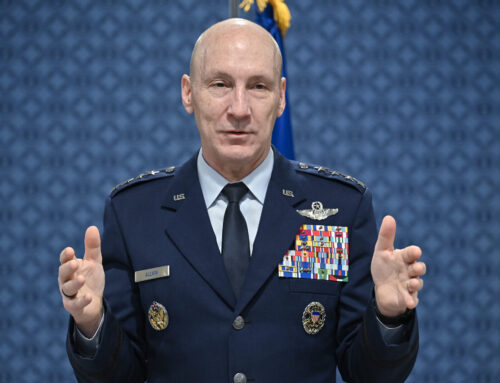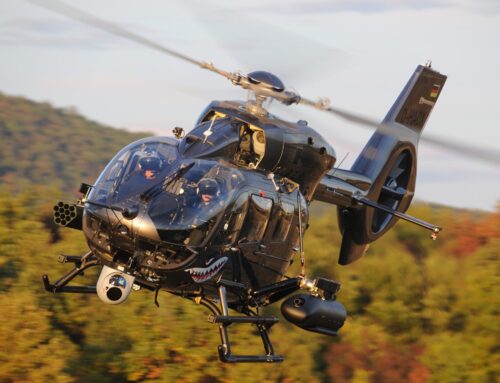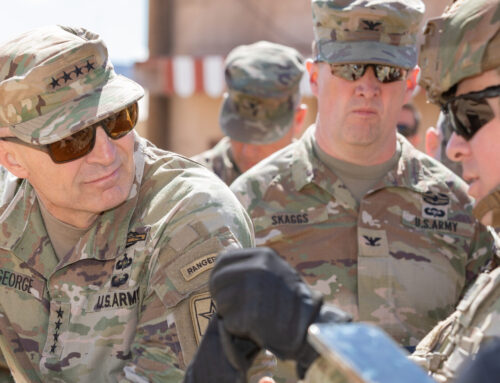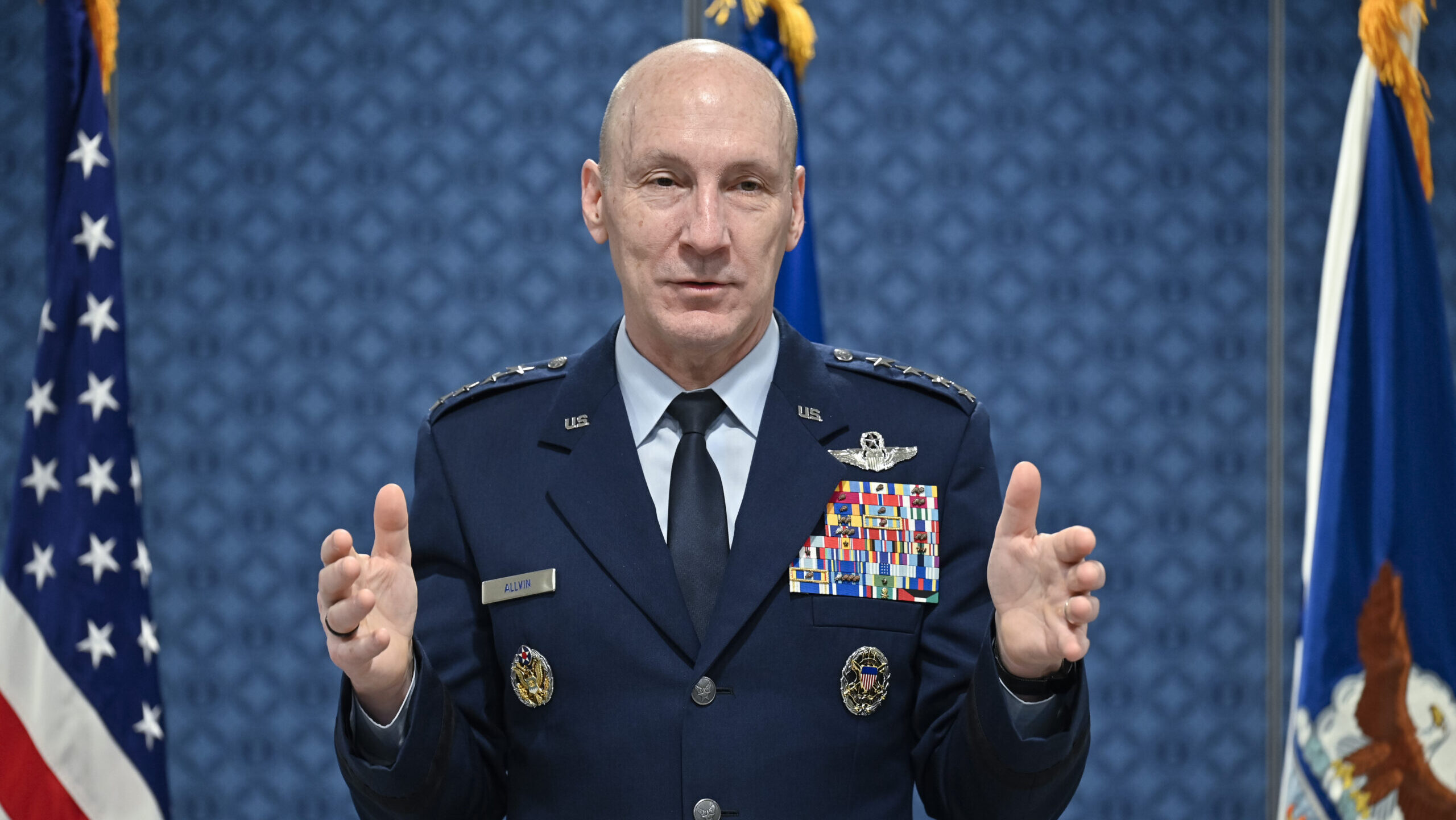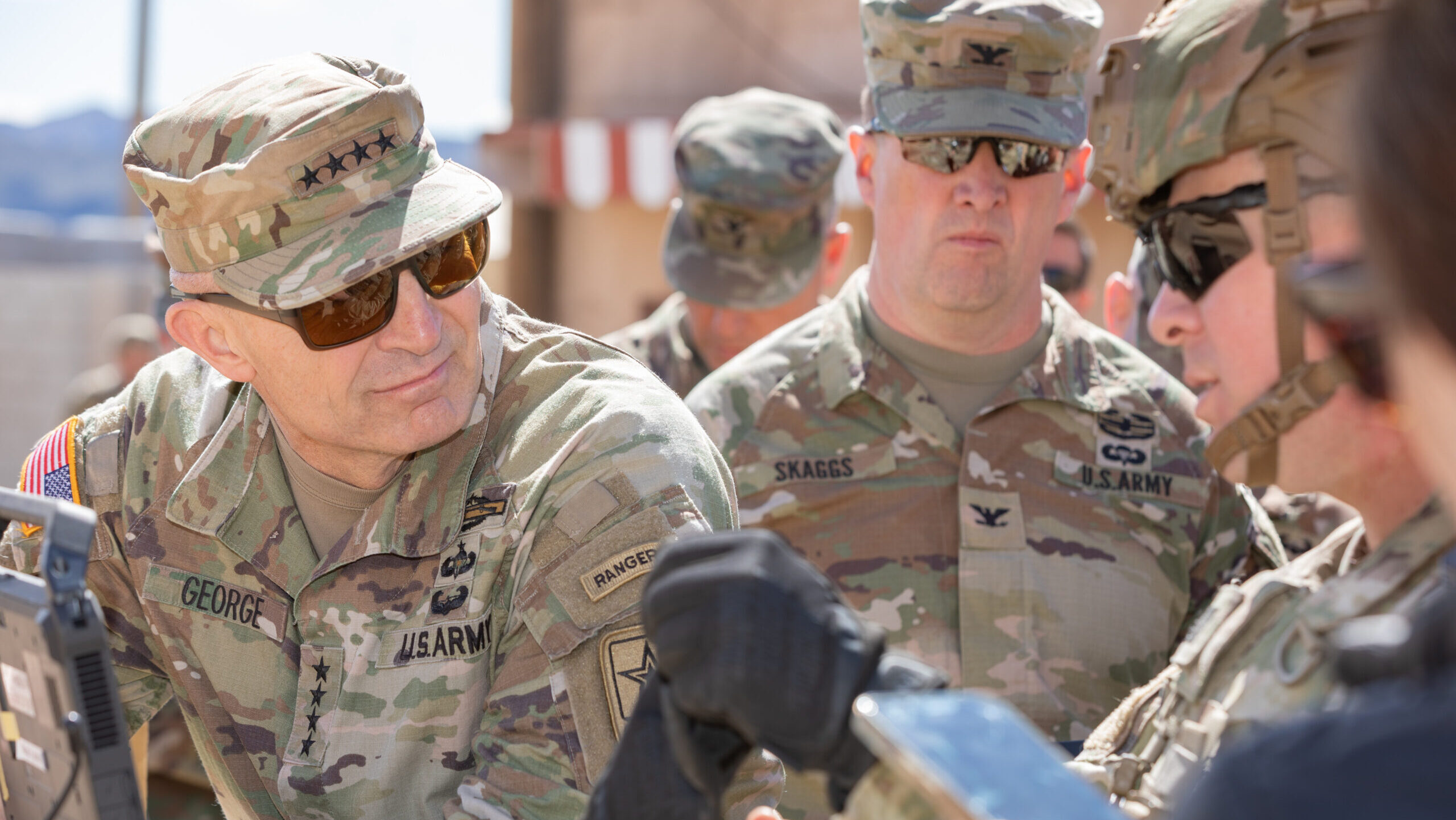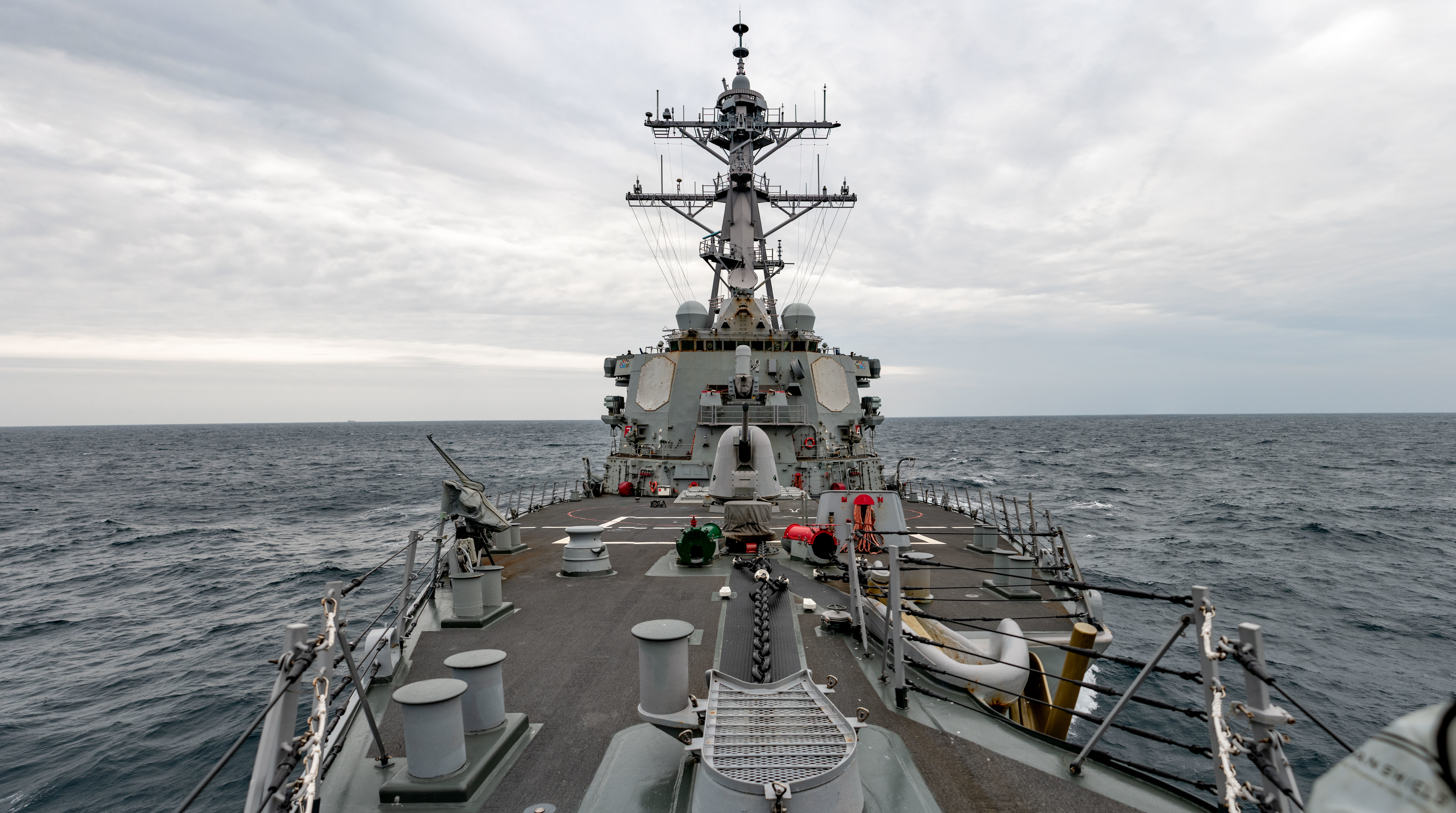A Lebanese soldier provides security for his squad during a village clearance rehearsal with U.S. Special Forces during Exercise Eager Lion, in Zarqa, Jordan, September 8, 2022. (U.S. Army photo by Spc. Derek Combs)
BEIRUT — France would support the Lebanese Armed Forces should Beirut decide to deploy them on a security mission to the southern border with Israel, a move that could prompt Paris to renew a push for international aid to the government forces, according to a French official.
France, like the rest of the world, has been watching warily the deterioration of the security situation along the border as Israeli forces and the Iran-backed Lebanese armed group Hezbollah trade fire, prompting growing concerns of a wider war there.
The French official, who spoke on the condition of anonymity, suggested there were discussions centered around the Lebanese Armed Forces going to the border to quell the violence.
“Nothing will happen without a political green light,” the official said, “[but] we need to be prepared to facilitate an increased presence of the LAF in South Lebanon to contribute to the security of [the] Lebanese people and to the sovereignty of the Lebanese state and territory.”
The official talked with Breaking Defense late last month, before tensions between Israel and Hezbollah, which effectively has free reign in southern Lebanon, ratcheted up. In recent days, Israel has approved war plans for a broader conflict in Lebanon, while Hezbollah leadership has responded with threats to broaden the conflict.
RELATED: In South Lebanon, empty villages, ruined crops and fears of what comes next
But the official’s broader point still stands: That France believes a deployment of Lebanese government forces to the southern border could serve to calm the situation, as neither Israel nor Hezbollah would want to trigger a wider conflict by killing government forces.
France is “standing by the LAF, and we have been thinking of preparing different initiatives, always to support the political decision,” the official said.
Among those initiatives, the official said, could be the rescheduling of an international conference in Paris that would push friendly nations to offer security contributions to the Lebanese military specifically to support southern operations. A conference to support the LAF more broadly was supposed to take place in February, but was canceled.
The official emphasized that there are “a lot of discussions between us in Beirut or the countries and other capitals” about how to secure the southern portion of the country “and our narrative is all the same.”
“I think [and] that’s my personal opinion, we wish the Lebanese state could be able to enforce its sovereignty on its territory. But of course, there are many challenges. So we need to be prepared,” the official said. “I mean, we are fully aware we cannot be too naive or too optimistic. But history is full of surprises. And if something happens, and there is a window of opportunity, we cannot miss it.”
Those Many Challenges
There are already some LAF forces in the border region, but the discussions the French official said Paris is looking for would amount to a historic deployment not seen in decades — and one that former senior Lebanese military officers said could run up against several practical obstacles.
While some of the former officials expressed confidence that the LAF could successfully prosecute a border security mission, the biggest wildcard for such an operation would remain Hezbollah. The armed group is a formidable fighting force, and it’s unclear how it would react to the introduction of military troops into areas it controls.
RELATED: Lebanon launches first maritime strategy, including focus on maritime border security
Should the government in Beirut decide to send troops, retired LAF Gen. Khalil Helou said Hezbollah could have two basic responses: Either it reacts violently and “there will be a clash between the LAF and Hezbollah,” which could also endanger United Nations troops stationed in southern Lebanon. Or Hezbollah accepts the deployment “on a superficial level, to reach [a] cease fire [with Israel] and stop the war of attrition, [but] without actually complying to such a decision,” he said.
Though Hezbollah leader Hasan Nasrallah recently gave a fiery speech threatening a war that would reach into the Mediterranean, the Shi’ite group for months has appeared wary of opening a wider war with Israel.
But rhetoric has heated up among Israeli officials as well, and deploying LAF to the border would also put them in greater danger of being struck by Israeli munitions — which has already happened more than two dozen times in recent months. To lower the chances to direct combat between the LAF and Israel, retired LAF Gen. Maroun Hitti said the border must be marked precisely and “shouldn’t be left vague, like in 2006.”
Should it come to is, however, retired Gen. Wehbe Katicha said the LAF is “completely” capable of protecting the border.
But for the LAF, there’s also a matter of manpower. Since the country’s 2019 financial crisis, it’s unclear if it can support a significant deployment of some of its 15,000 troops for what could be complex security operations.
That, again, is where Paris could come to Beirut’s aid through the rescheduled conference.
“What we are doing is identifying the ways in which we can help them [LAF] and force this plan,” the French official said. “We are coordinating between main partners to provide equipment, training, infrastructure and so on.”
But for Hitti, Hezbollah will remain the stumbling block to any LAF plan.
“As long as there is a political authority that is asking for approval from a foreign-backed armed organization to take action on the Lebanese ground, then we will remain in this status quo, as long as we don’t have a government that decides to take [the] reigns and control these issues,” he said.




